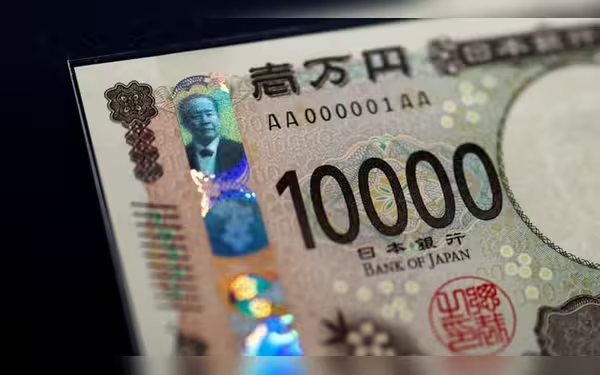Sunday, December 22, 2024 01:24 PM
Dollar Strengthens Against Yen as BOJ Remains Indeterminate on Rate Hikes
- Dollar rises 0.35% to 154.72 yen amid BOJ comments.
- Ueda hints at gradual rate increases, timing remains unclear.
- Market anticipates Fed's cautious approach to rate cuts.
 Image Credits: channelnewsasia
Image Credits: channelnewsasiaThe U.S. dollar gains against the yen as BOJ's Ueda hints at future rate hikes, leaving investors cautious amid economic uncertainties.
The foreign exchange market is witnessing notable fluctuations, particularly with the U.S. dollar gaining strength against the Japanese yen. This shift comes in the wake of comments from the Bank of Japan (BOJ) Governor Kazuo Ueda, who hinted at potential policy tightening. However, he left the timing of any interest rate hikes uncertain, which has left investors in a state of anticipation.
On Monday, the dollar rose by 0.35 percent to 154.72 yen, moving away from a recent low of 153.86. This increase follows Ueda's remarks that interest rates would gradually rise if the economy aligns with the BOJ's expectations. Yet, he did not specify whether a rate hike would occur in December, emphasizing the need to consider various risks, including those related to the U.S. economy.
Ueda's comments were particularly significant as they marked his first direct address on monetary policy since the U.S. presidential election on November 5. Investors were eager for clarity regarding future rate hikes, but the lack of definitive guidance has resulted in a cautious market. The uncertainty surrounding the yen was further compounded by Japanese Finance Minister Katsunobu Kato's warning of possible intervention if the yen depreciates too rapidly.
In the broader context, the dollar index, which measures the dollar against a basket of currencies, remained steady at 106.660 after reaching a one-year high of 107.07. This index has seen a 1.6 percent increase over the past week, marking a significant upward trend over the last six weeks. The rise in the dollar's value has coincided with a sharp increase in 10-year Treasury yields, which have surged by 70 basis points since early October.
Market analysts, such as Jonas Goltermann from Capital Economics, have revised their forecasts for the dollar, projecting a further 5 percent appreciation by the end of 2025. This outlook is based on expectations that President Trump will continue with his proposed tariff policies and that the U.S. economy will outperform its global counterparts.
As the market awaits the appointment of Trump's Treasury Secretary, speculation surrounds potential candidates like Howard Lutnick and Scott Bessent. Analysts predict that Trump's policies, which include tariffs and tax cuts, may lead to inflation, thereby limiting the Federal Reserve's ability to implement further rate cuts. Current futures indicate a 60 percent chance of a quarter-point rate cut by the Fed in December, with only modest cuts anticipated through late 2025.
This week, several Federal Reserve officials are scheduled to speak, and traders expect them to adopt a cautious tone regarding aggressive rate cuts. Additionally, European Central Bank officials will also be addressing the market, potentially adopting a more dovish stance in light of recent economic data.
The current dynamics of the dollar and yen exchange rates reflect broader economic uncertainties and the impact of monetary policy decisions. As investors navigate these fluctuations, it is crucial to stay informed about upcoming economic reports and central bank communications, which will undoubtedly shape market sentiment in the weeks to come. Understanding these factors can empower individuals and businesses alike to make informed financial decisions in an ever-changing economic landscape.













